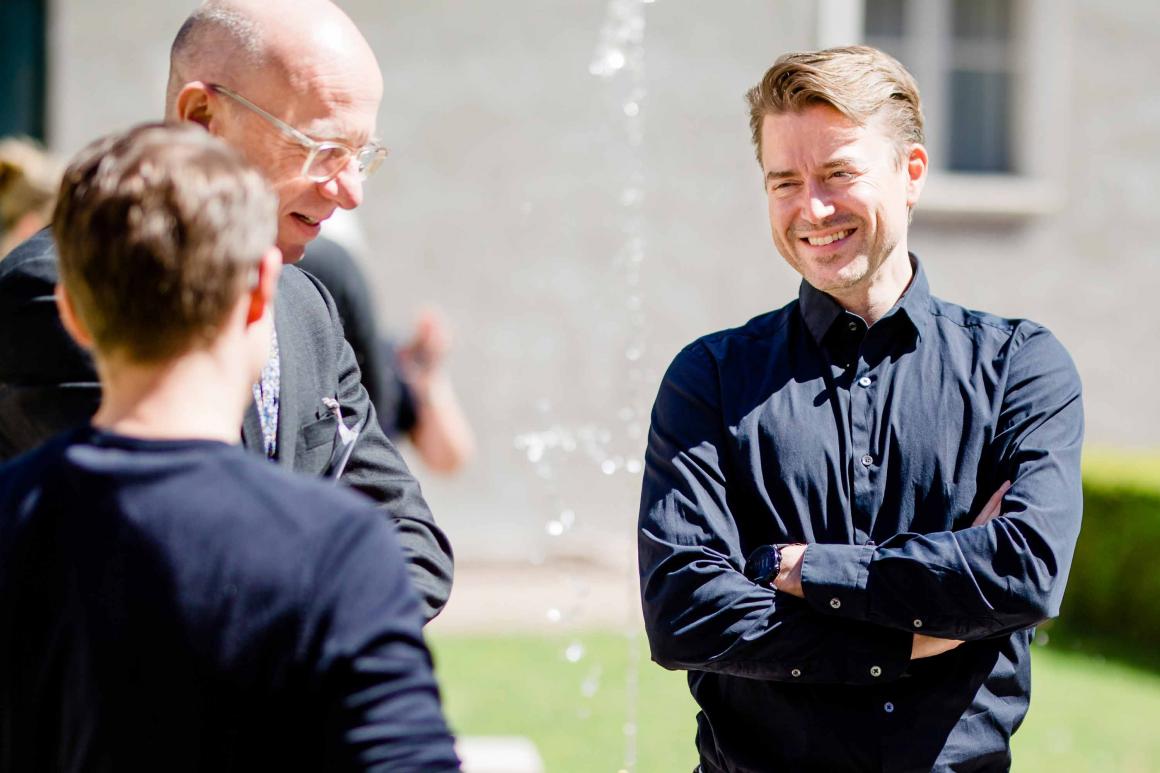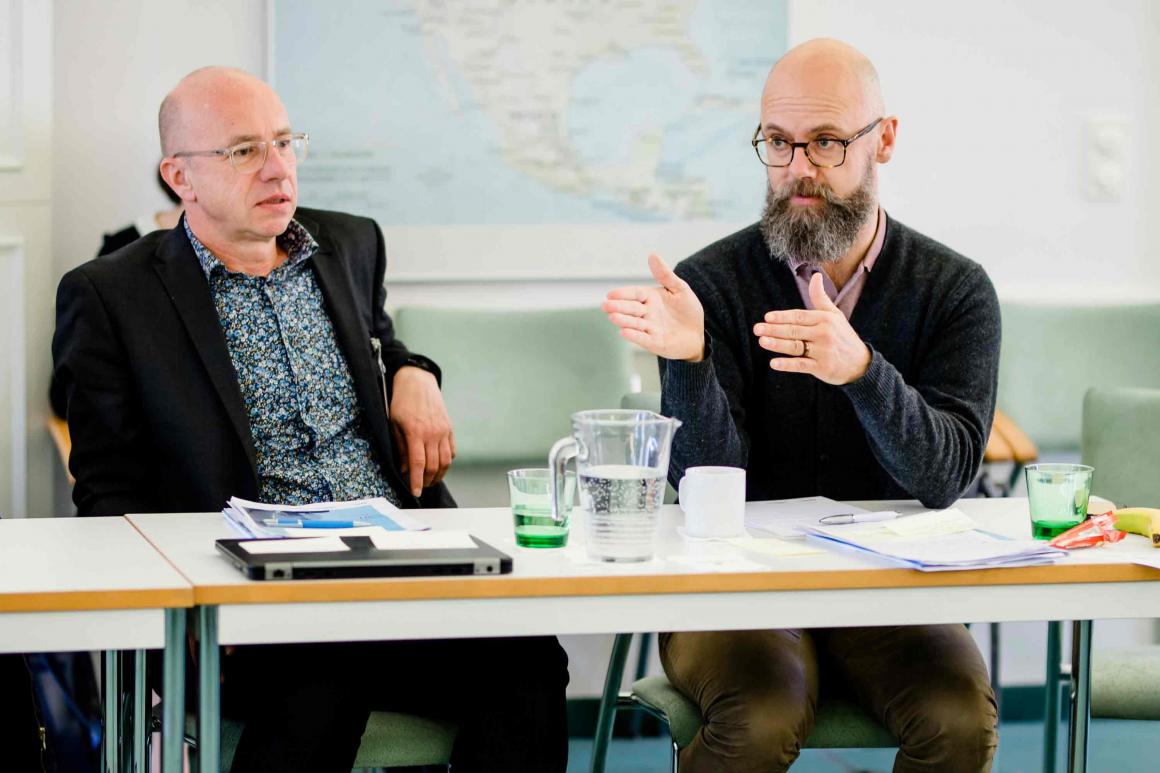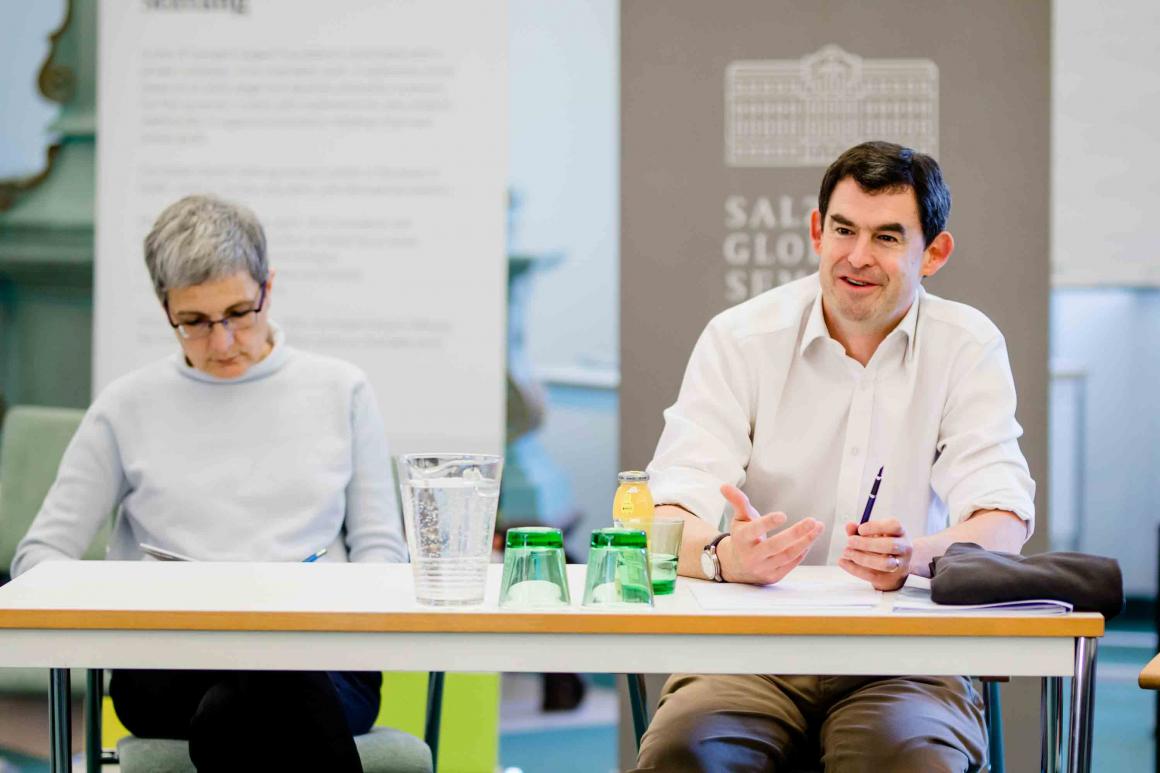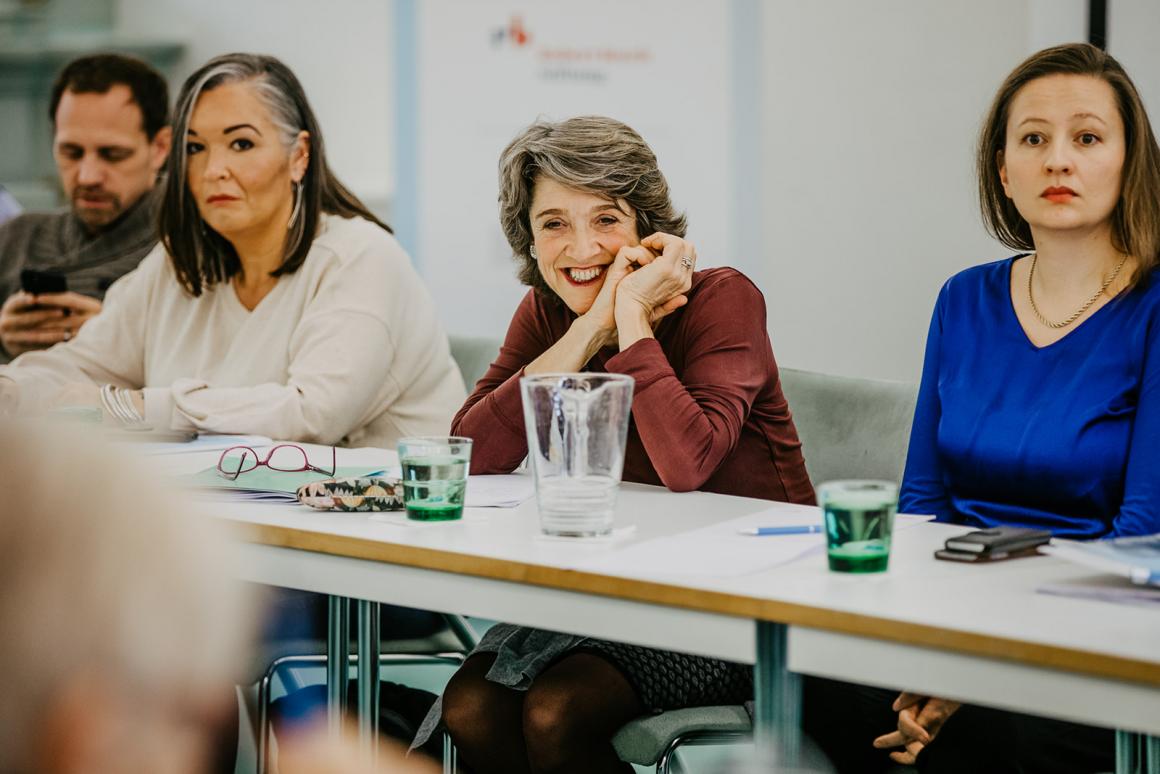International perspectives on the impact of COVID-19 Reflections from Sciana members
25 February 2021
Sciana: The Health Leaders Network brings together outstanding leaders in health and health care policy and innovation across Europe. The Sciana network is supported by a partnership between the Health Foundation (UK), Careum Stiftung (Switzerland) and the Robert Bosch Stiftung (Germany) in collaboration with Salzburg Global Seminar.
Here, four Sciana members reflect on the challenges that COVID-19 has brought to them as leaders and how being part of the Sciana network has made a difference during the pandemic.
Dr Oliver Gröne
Dr Oliver Gröne is Vice Chairman of the Board at OptiMedis AG, a management company that designs, implements and evaluates integrated care networks in Germany.

I joined Sciana because I wanted to create some space for myself to think about new ideas. I really appreciate having this time with colleagues from Germany, Switzerland and the UK where we can discuss broader questions.
As in the UK, the response to COVID-19 has been a moving target, with a lot of uncertainty. The integrated care networks that we support in our work here in Germany were well placed to address this uncertainty because people could just call each other and make local arrangements for things like test centres at a regional level.
More broadly, this year showed we need to be more agile in how we realise impact. We really tried to reduce bureaucracy and focus in on where we want to make a difference. I think we did more this year than in any of the previous years.
As well as the challenge of dealing with uncertainty, there’s also been an erosion of trust, nationally and internationally. National organisations still have a strong voice in synthesising evidence on any given subject, but you also have ‘fake news’. All sorts of organisations are trying to undermine trust in health organisations for various reasons. You need hard facts to plan your strategy and take people with you, but when you have an erosion of trust it makes it hard to do your job. This is the first year I realised the extent of the problem because of the impact it has had on our work.
In Sciana, we discuss what it means to be a leader, but we also talk about systems leadership, and leadership in the context of global health, climate change and the UN’s Sustainable Development Goals, not topics you cover in a typical leadership programme. COVID-19 is the perfect example of a leadership challenge that can’t be solved only through a national lens. Many of the future health problems will be global so it feels natural that Sciana encourages us to look through an international lens.
Steve Clarke
Steve Clarke is Head of Mental Health at the Welsh Ambulance Service and NHS Direct Wales in the United Kingdom.

The Sciana network is providing a space for me to think about how, as leaders, we can approach the physical and mental health challenges that have come out of this pandemic, that will last for many years.
We are the biggest provider of crisis mental health care in Wales and COVID-19 has brought big challenges. In early 2020 there was a big spike in calls, and then calls dropped by 18% mid-pandemic, which was worrying.
From August, demand has risen again. I do some shifts on mental health emergency calls. We’re seeing lots of self-harm, overdosing and intoxication, especially among young people. In some ways, I enjoy this work the most at the moment, it’s a chance to help people directly.
We had already invested a lot in mental health support for our own staff, and it’s really helped during the pandemic. Staff can check their symptoms and access online support, such as cognitive behavioural therapy (CBT). It’s been really important to keep pushing for a culture of support at a leadership level, as the stresses caused by the pandemic can lead to a ‘command and control’ approach.
At the start of the pandemic, I was halfway through the two-year programme of Sciana meetings, and we had started to work together in small groups. My challenge group is looking at how to build healthy cities, and even though it is not related to the pandemic, thinking about this with Sciana colleagues has brought a sense of normality, and we’ve continued to exchange ideas.
For me, the impact of Sciana has been to be connected internationally to some very smart leaders. This is transformational in itself, but there’s the additional exchange of ideas. I’ve had conversations about specialist mental health nursing practice with German colleagues, and made new connections with some great mental health specialists in England.
Richard Kirby
Richard Kirby is Chief Executive of Birmingham Community Healthcare NHS Foundation Trust in the United Kingdom.

For me, COVID-19 has brought multi-level challenges. First, on a personal level, the pandemic has been a challenge like no other in my 20+ year career in the health service. It’s been a huge task to stay across the rapidly changing information, guidance and national and regional strategy and so on. Sciana’s webinar series, run over 2020, helped me connect and share notes with other colleagues in the UK, and there were good insights from members from the other countries. It has been really interesting to hear about vaccine development in the EU, for example, or the insights on leadership from WHO envoy David Nabarro.
Second - the most time consuming challenge - has been keeping my workforce safe, focused on the same priorities and motivated through all this. Everything we’ve been asked to do by the government has depended on the ability of our colleagues to respond, and with my senior leadership team we think hard about how best to support those on whom we depend if we are to succeed.
I’m collaborating with other Sciana members in our cohort on what ‘compassionate leadership’ looks like, drawing on work from experts such as Michael West, thinking about learning from social movements. This work feels highly relevant to my work and some of that thinking has been very useful in the task I have as a leader: how do I keep 5,000 people going, and pointing in the right direction?
Thirdly, on a personal level, Sciana has contributed to my sense of resilience, which I need as a leader. It enables me to occasionally take a step out of the maelstrom of what’s happening in Birmingham and devote time to something intellectually absorbing. I’m a historian by training, attending the webinars and meetings has really helped me to take a step back and see how things are playing out, from another angle.
There’s also been a sense of reassurance, or not feeling so alone, when we’ve exchanged experiences across national borders of the pandemic – hearing colleagues from Germany talk about the reality of their government’s response (not as positive as the press here have made out), or listening to Swiss members talk about where power should lie between the centre and the Cantons in responding to the pandemic. It’s brought me a broader perspective on the pandemic.
Judith Safford
Judith Safford is a patient expert and advocate in Switzerland.

I’d had seven very difficult years with spondyloarthritis and then 2019 with breast cancer. I thought 2020 was going to be easier and then the pandemic came.
In some ways, the threat of COVID-19 is very similar to living with chronic disease – but with the difference that now, with a vaccine available, we can see light at the end of the tunnel. People who are chronically ill have to manage their lives knowing their condition is incurable, there is no light at the end of the tunnel. Strangely, that recognition has been a huge step for me in accepting the way things are. I’ve found myself almost better armed to face the pandemic.
Sciana has brought me into contact with interesting, diverse people. Diversity makes teams more effective. It’s more challenging, but you get more interesting results.
I don’t lead organisations anymore, though I did when I was healthier, and I have always been very interested in leadership as a crucial element in problem resolution. We’ve seen this in the current crisis. Many countries that have managed the pandemic badly appear (at least anecdotally) to have had poor leadership, while the countries that have managed it well have had good leadership.
I lived both in the UK and Germany for many years, and now in Switzerland for 30 years, so I know all three health systems well. It’s absolutely fascinating to be together with people from those countries, especially as the patient representative. I can contribute ideas, am listened to and supported. I can’t tell you how empowering it’s been. I hope it’s helping other members to think about what we’re doing from a different perspective.
In addition to Sciana, I’m involved in a project to build and strengthen health systems and universal health coverage in low- and middle-income countries. It’s useful to look at how those countries dealt with recent pandemics, including Ebola and HIV. For example, if the clinical infrastructure wasn’t there, they developed systems of community-driven care.
There are lessons there about how we could bring greater patient and community focus into medical care, to make health care better and to address this pandemic. We should learn from countries that manage with fewer resources, as a counterbalance to the drive for ever more expensive and complex technology. This requires patient empowerment, improved self-management and improved prevention, all things that need patients to be involved.
Applications for the next cohort of Sciana: The Health Leaders Network are opening soon. Visit the website for more information and to apply.
This content originally featured in our email newsletter, which explores perspectives and expert opinion on a different health or health care topic each month.
Also in this newsletter
Work with us
We look for talented and passionate individuals as everyone at the Health Foundation has an important role to play.
View current vacanciesThe Q community
Q is an initiative connecting people with improvement expertise across the UK.
Find out more

